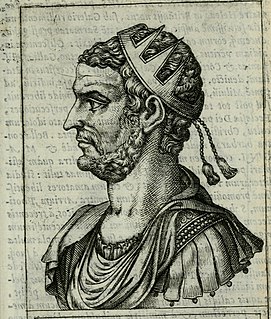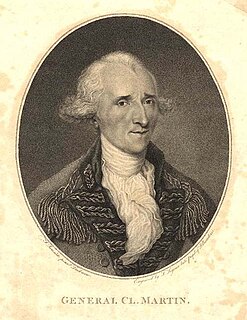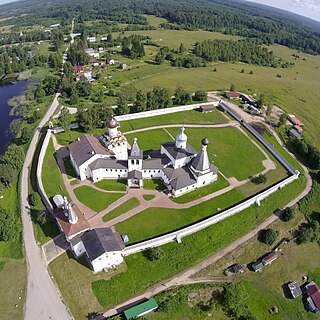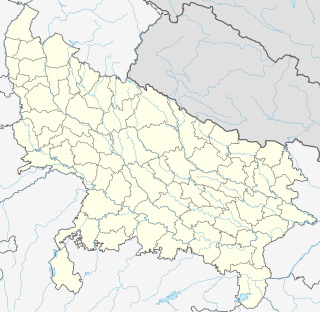Martinian (in Latin, Martinianus) can refer to:
- Roman emperor Martinian
- Claude Martin, the French adventurer
- A former pupil of one of the three schools founded by Claude Martin: La Martiniere Calcutta, La Martiniere Lucknow and La Martiniere Lyon.

Martinian, who died in 325, was Roman Emperor from July to September 18, 324. He had been appointed co-emperor by Licinius.

Major General Claude Martin was an officer in the French, and later the English East India Company's army in India. He rose to the position of Major General in the English East India Company's Bengal Army. Martin was born in Lyon, France, into a humble background, and was a self-made man who has left a substantial lasting legacy in the form of his writings, buildings and the educational institutions he founded posthumously. There are now ten schools named after him, two in Lucknow, two in Calcutta and six in Lyon. The small village of Martin Purwa in India was also named after him.

La Martinière Calcutta is an independent private day school located in Kolkata (Calcutta), West Bengal. It comprises two single-gender boys and girls schools. It was established in 1836 in accordance with the will of the French soldier of fortune and philanthropist, Major General Claude Martin. They are Christian schools, controlled by the Protestant Church of North India and independent from the Government, with English as the primary language of instruction.
Several Christian saints share that name:
- Saint Martinian, martyr of Rome: see Martinian and Processus,
- Saint Martinian, one of the Seven Sleepers of Ephesus.
- Saint Martinianus (bishop of Milan), reigned 423–435
- Saint Martinian of Byelozersk, Greek Orthodox saint, father superior of Troitse-Sergiyeva Lavra
- Saint Martinian of Areovinchus, Greek Orthodox saint, monk
- Saint Martinian, Greek Orthodox saint, monk of Zograf Monastery killed along with 26 others in 1275.

Martinian and Processus were Christian martyrs of ancient Rome. Neither the years they lived nor the circumstances of their deaths are known. They are currently buried in St. Peter's Basilica in Rome.

Martinianus was Archbishop of Milan from 423 to 435. He is honoured as a Saint in the Catholic Church and his feast day is 2 January.
| This disambiguation page lists articles associated with the title Martinian. If an internal link led you here, you may wish to change the link to point directly to the intended article. |








